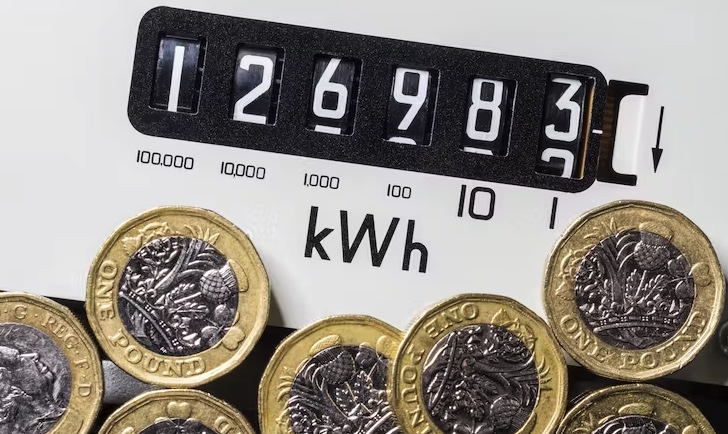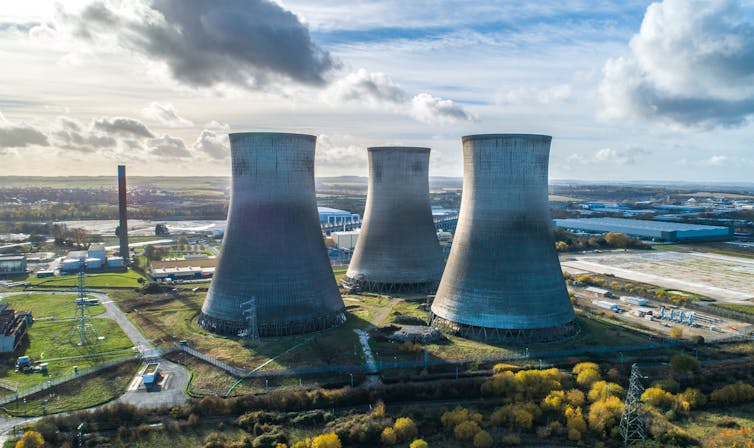Energy price cap: a targeted ‘social tariff’ must be part of a much wider set of reforms

By Karen Turner.
The British energy regulator Ofgem has announced the energy price cap for the last quarter of 2023, including early winter. Gas and electricity should be slightly cheaper than last year, but they are still too expensive.
The problem is the cap itself which, as I have written before, was never designed to keep energy affordable. It limits profits for suppliers but not bills for you or I.
The cap needs a complete overhaul and Britain ultimately needs to reset how initial consumer prices are actually determined, so that energy prices better reflect the falling cost of renewable energy.
We’ve gone as far as we can with tweaking – something more radical and fully thought out is required to ensure affordable and clean energy for all.
The new rates will deliver about a 7% drop in Ofgem’s headline “average household” energy bill from £2,074 to £1,923.
However, this is only a very slight drop in the rate per unit of energy, and standing charges are hardly moving at all. This has led to predictions that those vulnerable and lower income households using the least energy will suffer most this winter.
Many households are already struggling with their energy bills and there are real concerns that, in the absence of additional government support provided last winter, many will once again struggle to heat their homes.
Energy price cap for this winter
It is good news that the price cap for the period between October and December is lowering slightly. However, the system still relies on costly gas generation to balance supply and demand in the electricity network.
This means still-expensive wholesale gas is dragging up the price of electricity, and bills remain considerably higher than pre-2022 levels. Experts predict that the price cap will rise again slightly in the first quarter of 2024.

Drone Motion Stock / shutterstock
All this means energy remains too expensive, particularly for those lowest-income households who spend a higher proportion of their incomes on energy and energy-intensive things like food.
Some progress has been made. For example, from this July those on pre-payment meters can no longer be charged more for their energy than those paying by direct debit, with Ofgem currently reviewing ways to permanently remove the “premium” on prepayment meters from April 2024.
Time for a social tariff?
Ofgem’s chief executive Jonathan Brearley has spoken out about his doubts, stating that “the price cap was designed for a market that was much more stable – so, pre-2020 – and it worked quite well” but noting, given recent energy market volatility, how important it is that “collectively we understand that a very broad and crude mechanism is going to have risks as well as benefits”.
On this basis, Brearley says Ofgem “would welcome a debate on the future of pricing regulation” and that the regulator is willing to “work with government on all options, including a social tariff”.
Among charities, consumer groups and industry, there is broad support for a social tariff targeted at people struggling with their bills. However, the UK government’s position is less clear.
What might a social tariff look like? We already have them in the communications industry for broadband and phone packages, and low income households can apply for a flat-rate £150 Warm Home Discount on their energy bills.
However, many lower income and vulnerable households need to use more energy for a number of reasons, including poor insulation. Could a social tariff be developed that varies with income and energy use, as suggested by Citizens Advice?
Tinkering at the edges with energy affordability
While it makes sense, such a social tariff would be something entirely new and different in the context of the UK’s price cap system. Questions immediately arise as to how it would be administered to help those who need it. Furthermore, who would pay for it? Existing schemes such as the Warm Home Discount are operated by energy suppliers, with costs met through all consumer bills.
More generally, the “who pays” question is one that has already been raised and answered for the firms that supply energy to homes and businesses. At times where they haven’t been able to meet their costs, they can recover the extra cash though an increase in the cap – that is, by sending out more expensive bills. However, the people and businesses who pay those bills don’t benefit from the same protections.
There could be further undesirable implications. It may be more palatable for better-off consumers to help pick up the bill for less well-off ones, compared to enabling suppliers to recover costs in all parts of their business.
However, there is a risk of the costs falling on lower income consumers who don’t meet social tariff criteria (whatever these may be) so that more homes are pushed into fuel poverty.
More fundamentally, how would this all work in the context of a price cap system that was never designed with affordability in mind in the first place?
As such, it would make sense for any overhaul of the energy price cap to be part of a broader review to improve energy affordability.
That review would also involve looking at how to decouple electricity and gas prices, how to help the most vulnerable people make their homes more energy efficient, and, of course, revisiting how energy prices are set in the first place.![]()
Karen Turner, Professor and Director of the Centre for Energy Policy, University of Strathclyde
This article is republished from The Conversation
Main photo: Alex Yeung / shutterstock
Spotted something? Got a story? Email: [email protected]
Latest News
